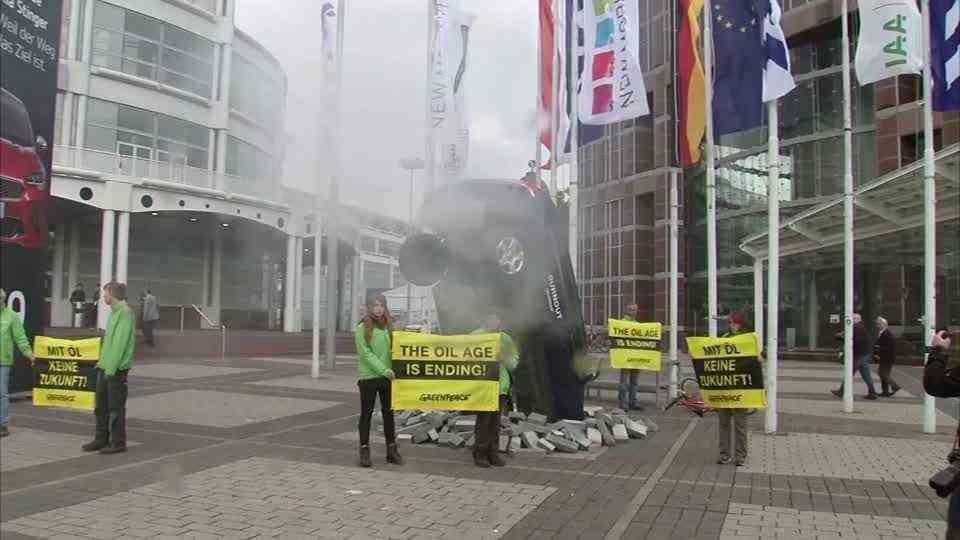Strong competition
VW cannot keep up with electric car production in China: “The hut is on fire”
VW does not produce enough electric cars in China (symbol photo)
© VCG / Imago Images
The electric car market is booming – especially in China. Meanwhile, things are not going well at VW. Production is limping. Serious consequences threaten the German auto giant.
“The hut is on fire in China,” “Wirtschaftswoche” quotes a VW insider. “And ask the head of China what he intends to do about it,” the magazine also quotes. This does not mean the operative China boss Stephan Wöllenstein but CEO Herbert Diess. Because VW is not making good progress with the production of its electric cars in China. It is “about really relevant dimensions, many billions of euros,” said the insider.
“In China our joint ventures have lost almost 30 percent, Skoda is minus 32 percent,” Diess recently explained to employees about the consequences of the semiconductor crisis. After all, cars are often temporarily stored halfway until they can be retrofitted and delivered. Deliveries in October fell by a good third (33.5 percent) to 600,900 units worldwide compared to the same month of 2020. The shortage of chips is less of a problem for other car manufacturers in China. The overall market grew by 27 percent from January to June – 13 percentage points more than Volkswagen, the world’s largest automaker after Toyota.
VW in 5th place in China
While the German carmaker is the top dog in China when it comes to selling its internal combustion engines, things look different with the electric models. The Chinese manufacturer BYD dominated the electric car market in October with a good 41,000 new registrations. SAIC-GM-Wuling comes to around 48,000 new registrations. 54,000 cars rolled off the production line at Tesla, but only 14,000 of them were sold in the country – the rest were exported. This was followed by the Chinese manufacturer GAC with a good 13,000 sales. VW only landed in 5th place with just under 13,000 cars. And other providers are rushing onto the market, and their vehicles are often more successful with the Chinese than Volkswagen.
In China, VW is not yet a “synonym for electric cars,” admits China boss Wöllenstein in view of the weak sales figures. “We know that it takes six to eight months before a new model is established.” VW boss Diess warned the workforce At a staff meeting in November: “You can only win if you understand the competition and keep an eye on it.” Today, Tesla is the benchmark, and other strong start-ups from China are also pushing into our market, according to Diess. “Ralf Brandstätter (VW Brand Manager) and I have tested a few cars from China in the past few weeks. We have to admit: They are really good,” said the VW CEO.
Sales of millions of electric cars planned
Should Diess not succeed in promoting business in China, he could possibly lose the support of the major shareholders of the Porsche-Piech clan. Because China is by far the most important car market for VW. On the course away from the internal combustion engine, the Wolfsburg-based company must now move into the electric age if they want to play a role in the Chinese car market.

For this reason, VW recently decided not to continue producing its successful model in China, Santana. The Wolfsburg-based company has sold more than six million units of the combustion engine in the past three decades. “Customer preferences are gradually shifting away from combustion engines with notchbacks to battery-electric vehicles and SUVs,” VW explained the decision a few days ago E-cars with good vehicles on the other hand.
Herbert Diess nevertheless has ambitious goals. He wants to sell 28 million electric cars worldwide by 2028. More than half of them are to be sold in China. And in two years, Volkswagen plans to offer eight ID. Models there. After the bad start at the beginning of the year, VW could actually achieve its sales target. However, only with reservation. Because the goal is “dependent on the availability of the semiconductors”.
Sources: Wirtschaftswoche, with material from dpa

